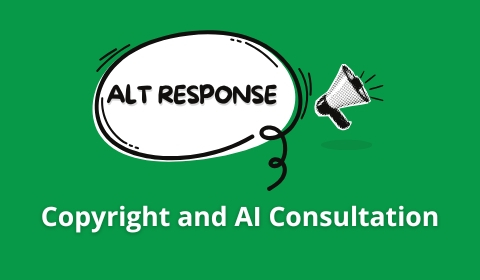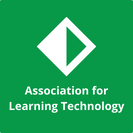
Launched in December 2024 by the Secretary of State for Science, Innovation and Technology, the consultation set out the Government’s plan to deliver a copyright and AI framework. The application of copyright law to the training of AI models is a topic for debate. Rights holders are finding it difficult to exercise their rights and AI developers are finding it difficult to navigate copyright law. The consultation sought views on how the Government can deliver a solution that achieves their key objectives for the AI sector and creative industries, including:
- Supporting rights holders’ control of their content and ability to be remunerated for its use.
- Supporting the development of world-leading AI models in the UK by ensuring wide and lawful access to high-quality data.
- Promoting greater trust and transparency between the sectors.
ALT invited members to share their views on the consultation and those views were included in ALT’s response. A summary of ALT’s response is shared below:
We found the consultation's framing problematic and would argue it presents a polarised choice between supporting individual copyright holders and promoting AI industry growth. We believe the framing favours large tech companies over creators and strongly advocate for the protection of intellectual property (IP) rights. We raised that the consultation overlooked the role of teachers and researchers in further and higher education as creators of IP and urged the government to recognise the copyright protections to these professionals in their framework.
We supported a text and data-mining (TDM) exception for experimental research and, to avoid the significant challenge of implementation, recommend that remuneration to rights holders only be required once AI products reach the market. Additionally, we opposed further licensing burdens on the education sector, emphasising that increased licensing costs would strain resources. We called for stronger transparency measures, requiring AI developers to cite data sources used for training AI models whilst acknowledging the challenges of implementing this in all scenarios.
On issues of infringement, we believe the current copyright protections are difficult for individuals to enforce and suggested shifting more responsibility to AI developers to prevent violations. While we support labelling AI-generated content for transparency, we have concerns over the reliability of existing technologies for labelling and watermarking. Furthermore, we stressed the need for stronger protections against the misuse of digital replicas, urging the government to ensure AI developers comply with data protection regulations and respect individual rights.
On the response, CEO Susan Martin commented:
As a professional association, ALT has an important role as an advocate for its members through representing the collective voice of its members and ensuring policy decisions are informed by practical well-informed views from the sector. Utilising the firsthand experiences of our members, we are able to explain the impact of policies, and to highlight potential challenges, unintended consequences and areas for improvement. Given the challenges and debate presented by AI, it is vital that we share the views of ALT’s members and the sector. We hope this response will help to shape the framework and foster responsible AI development in future.
